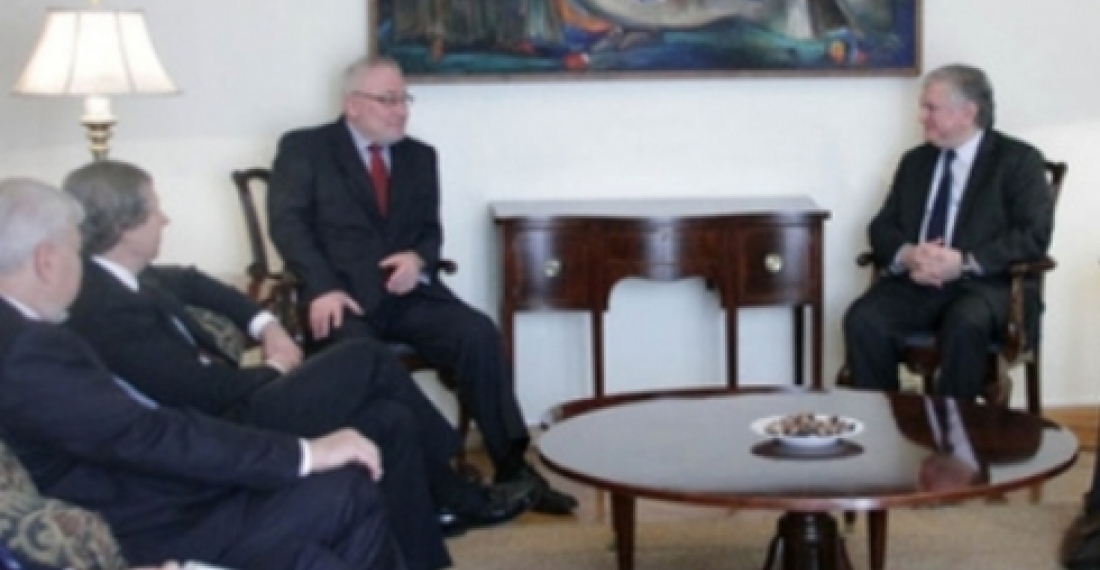Azerbaijan has accused Armenia of rejecting a proposal from the international community for the establishment of a working group to start preparing a comprehensive peace agreement.
Azerbaijan's Foreign Minister, Elmar Mammadyarov has accused Armenia of rejecting a proposal to set up a working group to start working on a draft of a comprehensive peace agreement to resolve the Karabakh conflict. Speaking while on an official visit to Tbilisi Mammadyarov said that Azerbaijan has accepted the proposal to establish a working group to prepare a peace agreement,but when the co-Chair took the idea to Yerevan earlier this week the Armenian side rejected the proposal.
Mammadyarov said that the idea of a comprehensive peace agreement was discussed during the summit of the Presidents of Armenia and Azerbaijan with the President of France in Paris last year. He said that the co-Chair of the Minsk Process during their recent visit to the region had suggested the establishment of a working group to develop a peace agreement within six to twelve months, and Azerbaijan had accepted the idea. The co-Chair than took the idea to the Armenian leadership in Yerevan. Mammadyarov was quoted by the Azerbaijani News Agency APA as saying that "the Armenian leadership has refused to this schedule. I've already talked to US Co-Chair, who informed me that the Armenian leadership rejected the proposal...... The co-chairs most likely will determine how to build the work in this direction. We need to start this work, the sooner the better. It is beneficial to all, including Armenia. Azerbaijan has accepted the proposal for establishment of a working group to prepare peace agreement. Now co-chairs will have to decide how to speak with Armenia".
Earlier, the Foreign Minister of Armenia Edward Nalbandian accused Azerbaijan of trying "to bring to naught the results of the negotiation process of several years on elaboration of the Basic Principles of the Nagorno-Karabakh conflict settlement. Baku is attempting to use the fact of the non-resolution of the conflict, through its own fault, tо justify the flagrant violations of human rights and repressions against opponents within the country." "As soon as an agreement on the Basic Principles is reached , and Nagorno-Karabakh approves it, then it will be possible to start by Azerbaijan, Nagorno-Karabakh and Armenia to elaborate a comprehensive peace agreement", Nalbandian was quoted as saying by the website of the Armenian Foreign Ministry.
In a statement issued earlier this month, the leadership of the organisation for Security and Co-operation in Europe (OSCE) stated that "The Minsk Group Co-Chairs, with the full support of the Chairperson-in-Office, are prepared to host an intensified negotiation process that can bring to a peaceful end a conflict that has scarred the region for too long. We strongly urge the sides to find the political will to begin this process immediately without excuses."
source: commonspace.eu with agencies.
photo: The co-Chair of the OSCE Minsk Process met the Foreign Minister of Armenia Edward Nalbandian in Yerevan on Tuesday, 17 February 2015. (picture courtesy of the Press Service of the Foreign Ministry of Armenia).







